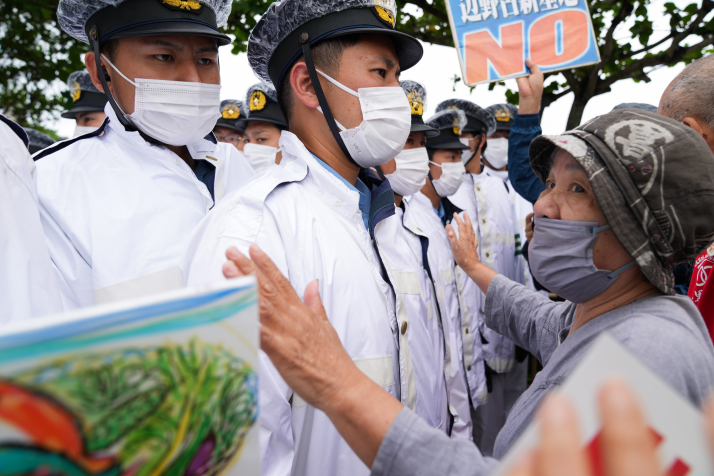| Pacific Dialogue |
| Uncle Sam's new vanguard | |
|
|
 Demonstrators rally in Okinawa on May 15, demanding a total withdrawal of the U.S. forces from the Japanese territory (XINHUA)
Before embarking on his first trip to Asia after taking office, U.S. President Joe Biden had repeatedly stated that the visit aimed to promote stability, peace, and prosperity in the Indo-Pacific region. But, whether the launch of the Indo-Pacific Economic Framework (IPEF) or further strengthening the QUAD mechanism, a security dialogue between the U.S., Australia, India and Japan, the American strategic intention is clear: unite regional allies to contain China, both economically and militarily. The Republic of Korea (ROK) is the current focus of the U.S. Biden made the country his first stop on this Asia tour, breaking with the tradition of previous U.S. presidents visiting Japan before other East Asian allies. In response, President Yoon Seok-youl, who came into power just 11 days before Biden's visit on May 20-22, has reversed the policy of strategic ambiguity between China and the U.S. under former President Moon Jae-in and actively sought further cooperation with the U.S. in the economic and security fields. The country's National Intelligence Service became the first in Asia to join NATO's Cyber Defense Group and following its IPEF participation, the ROK may very well take part in the QUAD Plus mechanism in the future. The QUAD is perceived as an anti-China alliance by many regional and international scholars. Although the country's economic and military power, to some extent, can be considered world-class, it traditionally needs the U.S. to provide security protection to deal with alleged military threat from the Democratic People's Republic of Korea. Entrusting the ROK with a frontline task at a time of geopolitical faceoff seems to be a last resort for the U.S. With the ongoing Russia-Ukraine conflict reshaping the situation in Europe, the U.S., one arm tied behind its back, does not have the strength to take down China singlehandedly. In other words, if the U.S. wants to simultaneously suppress Russia and China, it must rely on its allies. With member states of the Association of Southeast Asian Nations unwilling to get mixed up in the U.S.-led containment against China, it makes sense for the U.S. to pin high hopes on other countries of this continent, the ROK in particular. The political relationship between China and the ROK does fluctuate with Sino-American relations but has remained generally stable for most of the past three decades since they established diplomatic ties in 1992. Moreover, China is the ROK's largest trading partner, and the people-to-people exchanges between both have maintained a high degree of enthusiasm before the pandemic. What matters most in the Asia-Pacific region and in the world as a whole is peace, growth and development, rather than confrontation, war or a revisit to a cold war. China is a major force for peace and development in the region, and the United States will need to work with China, rather than confronting it, to ensure regional stability. It's likely that while the ROK cozies up to the U.S., its shared interests with China might probably be weakened. How to play an intricate balancing act between China and the U.S. may be an important issue Yoon will face in the future. Copyedited by Elsbeth van Paridon Comments to yanwei@cicgamericas.com |
|
||||||||||||||||||||||||||||
|